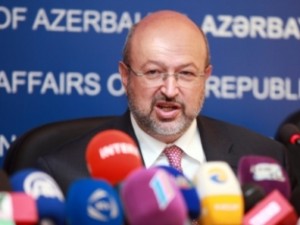
Lately, there has been a lot of discussion about the reforms and the development of the OSCE. What work do you plan to implement in the nearest future?
The OSCE is a unique organization – it is the largest regional security organization bringing together 56 participating States with sometimes opposite political views, and our goal is to serve as a platform where they can meet, reconcile their differences and take consensus decisions. However, in order for such a platform to be effective, it needs to be as relevant as possible for its participants. This is why when I took up the position of the OSCE Secretary General a year ago, I put raising the effectiveness of the Organization high on the agenda.
Some progress has already been achieved. In order to effectively counter such transnational threats as terrorism, organized crime, drug trafficking we’ve created a special department within the OSCE which deals especially with addressing such threats. We’ve been quite active in raising the profile of the organization – both in the media, and in relations with its international partners and with the research community. Last December in Vilnius foreign ministers of all OSCE participating States took an important decision on elements of the conflict cycle in order to strengthen the OSCE’s capabilities in this area.
Together with breakthroughs, a number of serious problems persist in the OSCE region. These include closed borders between participating States of the Organization. How would you assess the continued blockade of Armenia from the side of Turkey and linking the issue of the normalization of relations with the Nagorno-Karabakh conflict settlement, and, in parallel, to the refusal of the official Ankara to ratify the Armenian-Turkish protocols?
The ratification of the Armenia-Turkey protocols as such remains a matter for the bilateral relations between the two countries. However, the matter was raised in the OSCE Permanent Council on several occasions by both countries and other participating States. We would welcome any developments which would strengthen peace and stability in the region.
Despite the appeals from the international community, in the first place from the OSCE Minsk Group Co-Chairs, Azerbaijan refuses to withdraw snipers from the Line of Contact, carries out provocations and steps up the arms race. Are there mechanisms to force to a refusal from attempts to resolve the problem by use of force, and create a mechanism of investigating incidents on the line of contact?
No external player – be it OSCE or another body – can impose a solution on the sides of the conflict or resolve it. Political will of the sides is the only way to negotiate a peaceful solution. We will continue our efforts to get the sides to withdraw snipers from the line of contact, and to implement their commitment on the investigation of incidents on the line of contact which the Presidents undertook in Sochi last year.
Are there possibilities for stepping up the work with “non-recognized states” in the OSCE region?
It would be misleading to generalize the OSCE’s interaction with entities which are not internationally recognized as states, as each format and mechanism for dealing with such cases is individually conceived and internationally agreed.
Are you expecting new participating States to the Organization? Specifically, what is the situation with Mongolia?
Mongolia applied to become an OSCE participating State in October last year, and in December 2011 all 56 participating States in Vilnius tasked the Irish Chairmanship to take forward the application. As part of this effort, the Irish Presidency organized a familiarization trip to Mongolia this June, in which I took part. The final decision on Mongolia’s application must be taken by a consensus decision of all 56 participating States.
Can the OSCE take any measures in order to prevent further exacerbation of the conflict in Syria?
Syria is neither a participating State of the OSCE nor a Partner for Co-operation. The situation in Syria is being dealt with in other forums, most notably the UN Security Council. Naturally, situation around Syria and differences in positions of some States can have an impact on their interaction within the OSCE. We generally support resolution of conflicts by peaceful means. However, the conflict in Syria lies outside of the remit of the OSCE work and therefore the OSCE is not in a position to take action in any way.



















































